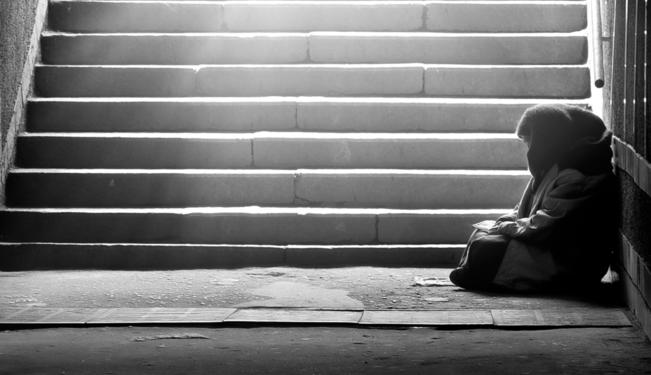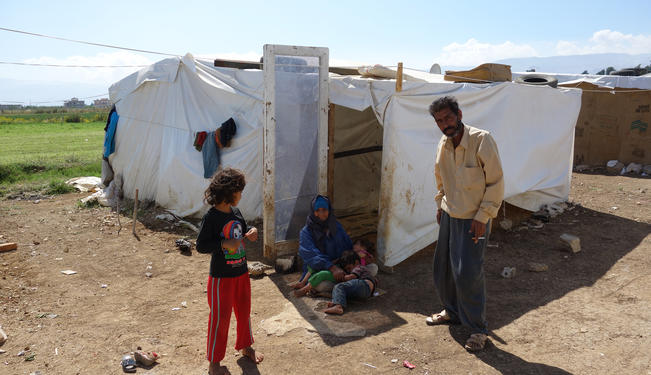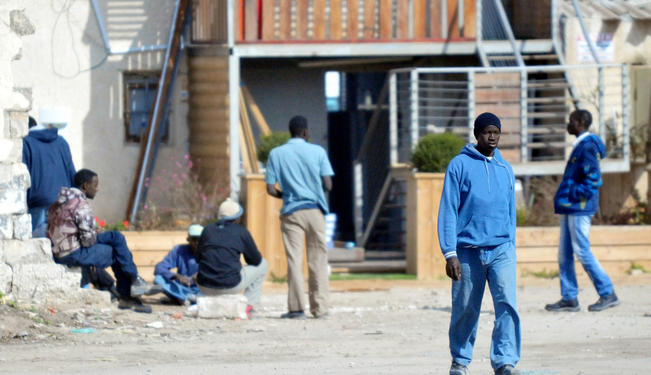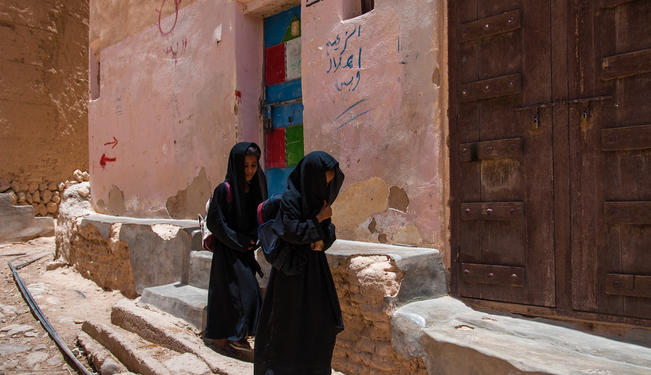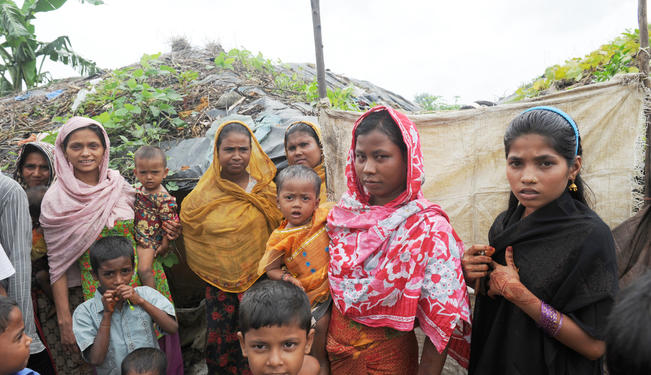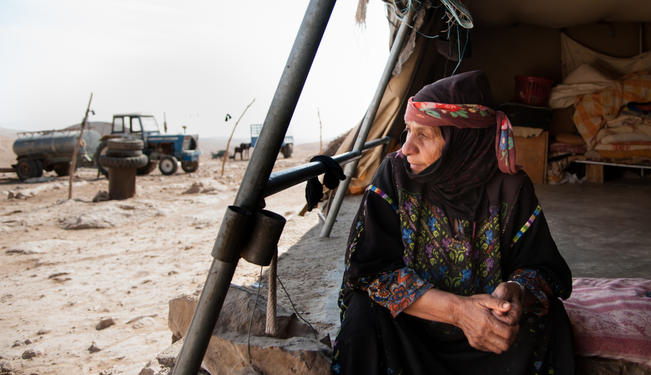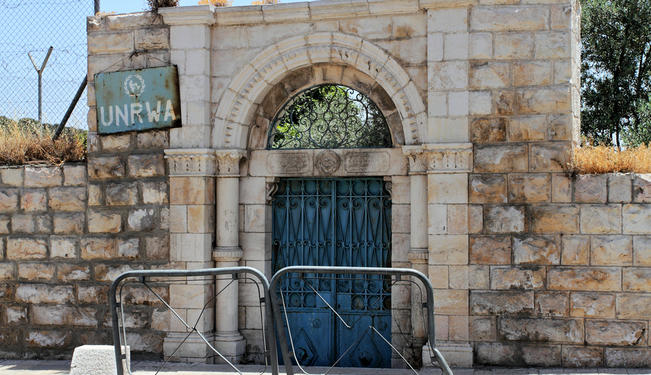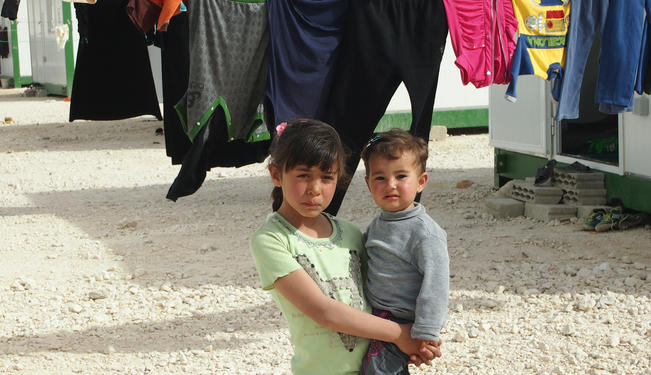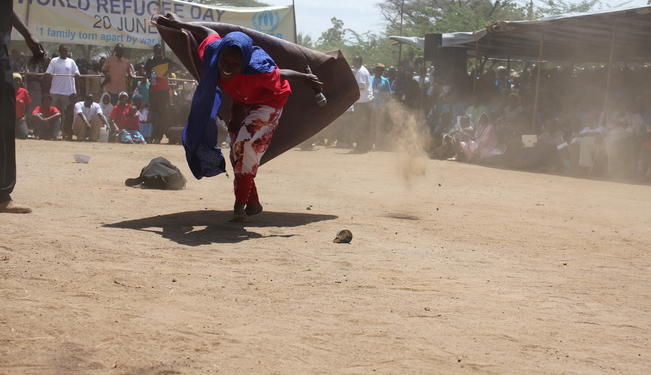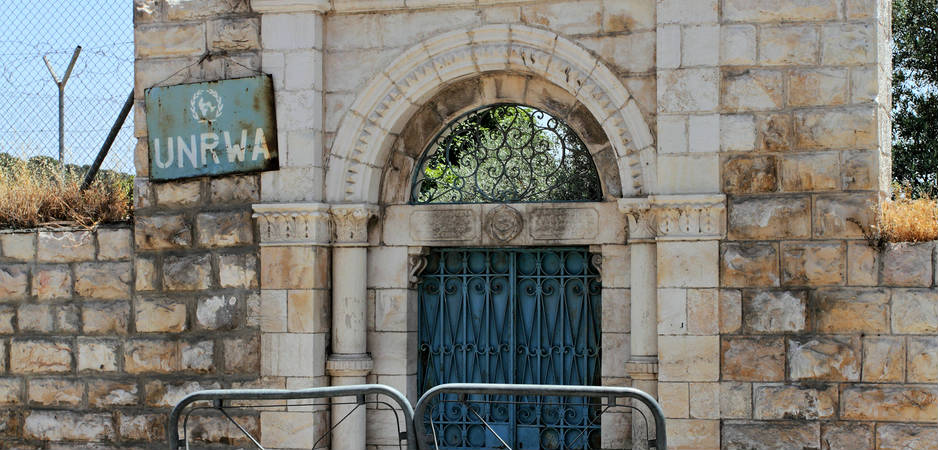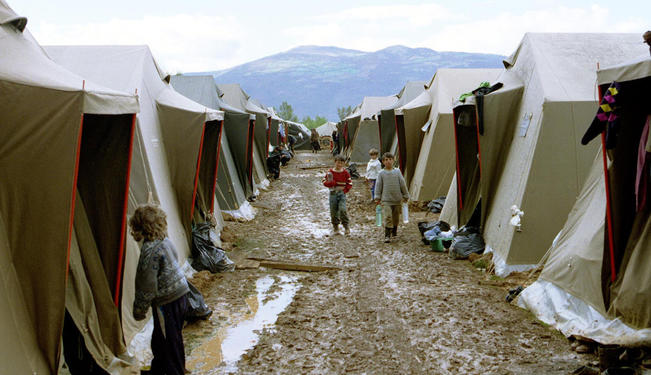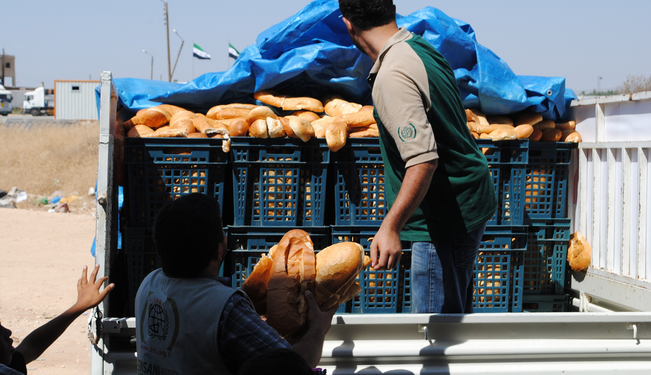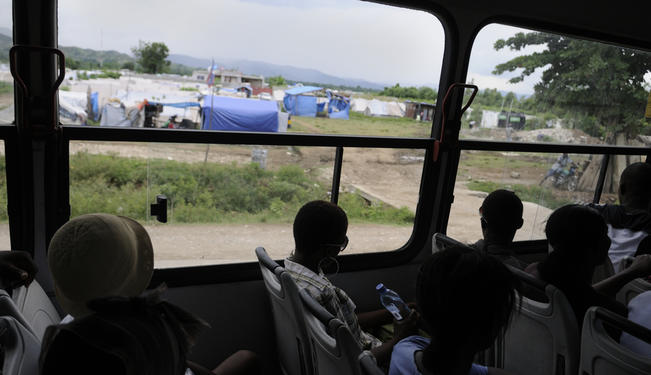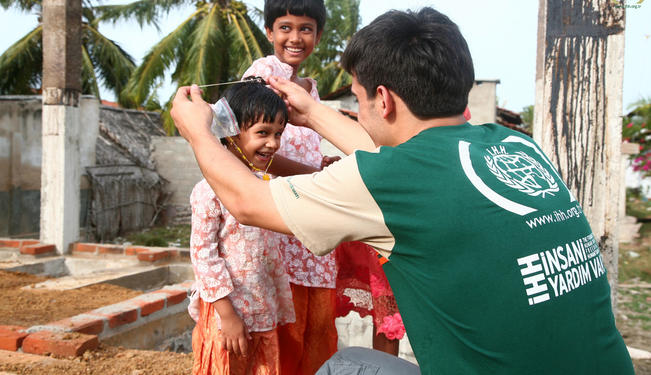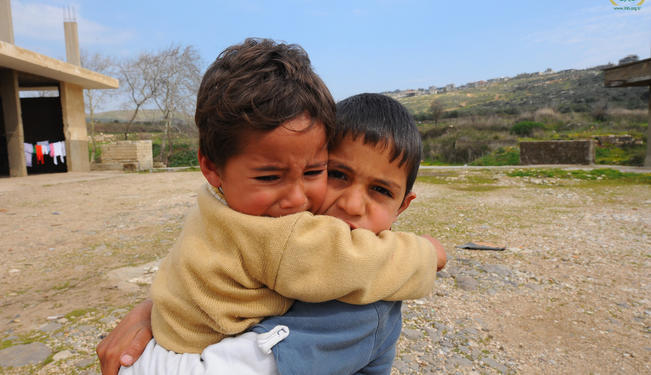A 2010 report by the Still Human Still Here coalition, “At the End of the Line: Restoring Integrity of the UK’s Asylum System”, documents destitution, inadequate access to health care and inability to work among asylum seekers which are still relevant three years on. The following is an executive summary of the report.
In January 2009, the British Red Cross announced that: “Some of the conditions that the British Red Cross have witnessed in dealing with destitution (in the UK) have shown a degree of suffering and inhumanity that, if we as the world’s largest humanitarian organisation witnessed them in a different environment, such as an area of natural disaster or a conflict zone, we would be shocked into making an immediate emergency response.”
No Civilised Nation
Regulations introduced in early 1996 removed any right to income support or housing under homelessness legislation for asylum seekers who did not claim asylum immediately on arrival in the UK. Benefits were also denied to those appealing a refusal of asylum.
The Court of Appeal found the government had exceeded its powers by introducing these regulations, which Lord Justice Simon Brown said, “necessarily contemplate for some a life so destitute that, to my mind, no civilised nation can tolerate it.” Nevertheless, the government immediately introduced similar provisions in the 1996 Asylum and Immigration Act.
In 1997, the Court of Appeal ruled that local authorities had a duty under long standing homelessness legislation, the 1948 National Assistance Act, to support destitute asylum seekers. The 1999 Immigration and Asylum Act removed that obligation and created a National Asylum Support Service (NASS) that provided support to asylum seekers completely outside the mainstream benefits system. The level of support was reduced to the equivalent of 70 per cent of income support on the grounds that it was short term, and asylum seekers in NASS accommodation would not be expected to pay utility bills.
Vouchers were issued instead of cash, despite the Home Office’s own recognition that “cash based support is administratively convenient, and usually though not inevitably less expensive in terms of unit cost”.
The Transport and General Workers Union, Oxfam, the Refugee Council and the Asylum Rights Campaign led a campaign for vouchers to be withdrawn, on the grounds that they were bureaucratic, expensive to administer, humiliating for asylum-seekers and further impoverishing people who were already very poor.
David Blunkett, MP, then home secretary, announced a review of the voucher system, acknowledging that it was, “too slow, vulnerable to fraud and felt to be unfair by asylum seekers and local communities” and, in 2002, vouchers were abolished for asylum seekers who had not yet received a final decision. Initially, refused asylum seekers were supported with a mixture of cash and in-kind assistance but, from April 2005, cash payments ceased and refused asylum seekers were provided with vouchers instead.
Asylum Support System
The UK Borders Agency took over responsibility for asylum support from NASS, and asylum seekers continue to be supported outside of the benefits system and largely beyond local authority provision. Under Section 95 of the 1999 Immigration and Asylum Act, they receive a living allowance and a no-choice offer of accommodation outside London, or “subsistence only” if they choose to stay with family or friends.
During the passage of the 1999 Bill, the government set support rates for asylum seekers at 70 per cent of Income Support and noted that: “The government consider the link to the amount of income support benefits to be generally quite helpful.”
Ten years later, the rationale for reduced payments of 70 per cent remained essentially unchanged, with the Home Office stating: “The government does not have a policy of destitution. The UK’s asylum support policy is properly balanced and sufficient to meet essential living needs…The levels of subsistence support reflect the temporary nature of support to an asylum seeker and the fact they have access to fully furnished, rent free accommodation with utilities and council tax included.”
However, in practice, the Home Office has reduced support rates for lone parents to 66 per cent of Income Support and support for single adults aged 25 or above to just 55 per cent of Income Support. This amounts to little more than £5 a day.
The level of welfare benefits for single adults in the general population, aged 18 to 24, is lower than for people over 25 because the government expects their families to help them. Single asylum seekers, on the other hand, do not generally have family in the UK.
The Home Office should have set the single rate for all adult asylum seekers at least at £45.01 a week, which is 70 per cent of the level of Income Support for adults over 25.
Setting support rates at well below 70 per cent of Income Support is not consistent with the government’s own logic for paying reduced rates and many asylum seekers will be unable to meet their essential living needs on weekly support rates of £35.13 or some £5 a day.
“Sometimes I begged for £1 or £2 to buy food, but begging made me feel very ashamed…When you’re sleeping outside, one night feels like one year because its’ so cold. I never managed to sleep for more than an hour or two and when it’s raining it’s hard to sleep for more than fifteen minutes at a time.” Hamid, 28, a refused asylum seeker from Iran, has made three suicide attempts while in the UK.
Essential Living Needs
Section 95 of the Immigration and Asylum Act 1999 defines a person as destitute if they are homeless and/or cannot meet their “essential living needs”. If an asylum seeker does not have sufficient money each week to meet their food, clothing, health and hygiene needs, along with a minimum amount to allow them to pursue their asylum claim (travel, postage and phone calls), it would be reasonable to say that they cannot meet their essential living needs.
Still Human has calculated the cost of meeting those needs by adapting the basket of basic goods compiled by the Joseph Rowntree Foundation in 2008 as part of their research for minimum income standards in Britain. Items that would not generally be considered essential to avoid absolute poverty were removed.
Accordingly, Still Human estimates that an asylum seeker in 2008 would have needed a minimum of £31.66 a week for food and a further £9.70 a week to meet the costs of household cleaning items, toiletries, cold/flu remedies, paracetamol, telephone calls, stamps, clothes and travel.
Taking inflation into account, the minimum required for a single adult asylum seeker to meet their essential living needs in 2009 amounts to no less than £43.60 a week (the cost of accommodation, utility bills and council tax are not included). However, it should be stressed that the weekly costs are calculated on an annual basis, so the actual costs for most asylum seekers will be higher, as they will be in the asylum system for a limited time and will be unable to spread the costs over a year.
Single adults over 25 receive £64.30 in Income Support, in addition to housing and council tax benefit. If asylum seekers received 70 per cent of income support (20 per cent less because they do not have to pay for utilities and a further 10 per cent less because they are only supposed to be in the system temporarily), it would amount to £45.01 — just enough to meet the estimated cost of their essential living needs. The majority of asylum seekers have to survive on significantly less than this.
Refused Asylum Seekers
If a person is refused asylum and has no further opportunities to appeal, they lose their right to accommodation and support 21 days later. As they are not allowed to work, they are very likely to be destitute. The exception to this includes asylum seekers with children, refused asylum seekers who are destitute and are showing that they are taking steps to leave the country (and thereby can access Section 4 support), and those who are “destitute plus” – those who need care and attention due to their mental or physical health.
“The worst thing for me was living on the streets and selling sex. Men lied to me and said they were going to help me but it wasn’t true. They had sex with me and then gave me no money. Sometimes I thought about killing myself. Everyday I had to have sex so I could eat. I was hearing voices. I couldn’t sleep. All I could think about was hunger.” Thania was raped by Congolese soldiers when she was 15 years old. The soldiers also killed her parents. She was refused asylum and ended up destitute, but has now been given protection in the UK.
Destitute refused asylum seekers have often relied on other asylum seekers who are still being supported (either under Section 95 or Section 4) for help to survive: whether for a floor to sleep on, food or for other basic necessities.
A man from Zimbabwe: “I was so desperate that I did something I am ashamed of. I was so hungry that I went into a police station and asked if I could spend a night in a cell. They said no as I had not done anything wrong. They were very polite to me. I was so desperate that on the way out I deliberately smashed a police car headlight so they would have to arrest me. I spent a week in jail. The judge at the trial was very sympathetic. I know it was wrong to do this but I was desperate. The food was actually quite good.”
Soft Touch
Many asylum policies are based on the mistaken assumption that the government can reduce the number of applications made in the UK, and convince refused asylum seekers to return to their country of origin by making their lives here increasingly difficult. Not only is this approach unprincipled, particularly as a significant proportion of asylum seekers will go on to be recognised as refugees, but it has also proven to be remarkably ineffective. In 1999, a cashless support system was introduced in order to reduce applications by showing that Britain was not a “soft touch”. Applications increased in 2000 and peaked at 84,130 in 2002. The voucher system was abandoned in 2002 and applications steadily declined to 23,430 in 2007. This shows that cash benefits were not the draw they were made out to be in the public debate.
Charities working with asylum seekers find that destitute people are too busy trying to survive to think about any decision to return. In the words of one voluntary sector worker: “Destitution means that clients cannot properly consider how they will re-embed with their families and communities post-return as they are focused on the very immediate needs of food, shelter and health care in the UK.”
If destitution makes voluntary return less likely, it also gets in the way of enforcement. Once support is withdrawn from refused asylum seekers they have little incentive to stay in touch with the authorities, making it harder for the UK Border Agency to remove them.
Health Care
In 2004, as part of the NHS (Charges to Overseas Visitors) (Amendment) Regulations, the government introduced charges for all refused asylum seekers. The only exceptions to this rule were for emergencies, most communicable diseases (except HIV/AIDS), compulsory mental health care and family planning. In these cases treatment should be provided free of charge. Where treatment is immediately necessary “to save life or prevent a condition from becoming life-threatening” it should be provided, but then charged for later.
In the first two years following the introduction of the regulations, the Refugee Council worked with dozens of refused asylum seekers who had been denied or charged for the healthcare they urgently needed. These cases included fifteen women and two girls who were charged more than £2,000 for maternity care and in some cases denied that care if they could not pay in advance; ten people who needed operations for different medical conditions or treatment for injuries sustained in the UK or their country of origin; four people with cancer who were denied treatment; one man with bowel cancer was admitted to A&E, but had an operation cancelled when they realised he could not pay for it – he was told to come back “when his condition deteriorates”.
The rationale for restricting asylum seekers’ access to health care was to stop “abuse of the NHS by health tourists”, where foreign nationals are alleged to travel to the UK for the express purpose of benefiting from free NHS healthcare. However, there is no indication that asylum seekers come to the UK to access healthcare. The Royal College of General Practitioners concluded in 2009 that there was “no evidence that asylum seekers enter the country because they wish to benefit from free healthcare”.
After the Court of Appeal found that the guidance was unlawful as it failed to provide a sufficiently clear definition of treatment that should be considered “urgent” and “immediately necessary”. In response to this the Department of Health issued new interim guidance on 2 April 2009. This makes clear that immediately necessary treatment, including maternity care, must never be withheld; urgent treatment for conditions such as cancer, which would deteriorate significantly if untreated, should not be withheld or delayed if the person cannot pay and is unable to return to their country. However, non-urgent treatment, which can wait until the person returns home, should not be started until payment has been made.
Conclusions
The government’s stated objectives in reforming the asylum support system are “[to] ensure those seeking asylum are effectively and comprehensively supported during the determination of their claim; that the system for achieving this is as simple and efficient as possible; and that it works towards the return of those who have no protection needs and who have no right to be in the United Kingdom.”
The best way to achieve this goal would be to abolish Section 4 and retain all refused asylum seekers who would otherwise be destitute on a single support system which provides cash support at a level which allows them to meet their essential living needs until they are returned to their country of origin or are given a legal status in the UK.
Many refugees arrive in the UK highly skilled, but are forced to survive for long periods either on minimal state support, near or below the poverty line, or utterly destitute. This leaves many socially marginalised, depressed, de-skilled and dependent. Allowing asylum seekers to work, for which there is broad public support, would reduce destitution, benefit the economy, benefit communities, and re-skill refugees for a better future, whether that is integration in the UK or sustainable return to their country of origin.
Yet, the number and frequency of asylum and immigration acts which have been passed by parliament in the last 15 years is testimony to the reactive and ineffective nature of asylum policy during this time. This causes serious hardship and suffering for the individuals affected, but destitution also has very significant social and financial costs for wider society and negatively impacts on a range of policy objectives including immigration control, promoting public health, reducing homelessness, eliminating poverty, ensuring child protection and fostering good community cohesion.
The views expressed in this article are the author’s own and do not necessarily reflect Fair Observer’s editorial policy.
Image: Copyright © Shutterstock. All Rights Reserved.
For more than 10 years, Fair Observer has been free, fair and independent. No billionaire owns us, no advertisers control us. We are a reader-supported nonprofit. Unlike many other publications, we keep our content free for readers regardless of where they live or whether they can afford to pay. We have no paywalls and no ads.
In the post-truth era of fake news, echo chambers and filter bubbles, we publish a plurality of perspectives from around the world. Anyone can publish with us, but everyone goes through a rigorous editorial process. So, you get fact-checked, well-reasoned content instead of noise.
We publish 2,500+ voices from 90+ countries. We also conduct education and training programs
on subjects ranging from digital media and journalism to writing and critical thinking. This
doesn’t come cheap. Servers, editors, trainers and web developers cost
money.
Please consider supporting us on a regular basis as a recurring donor or a
sustaining member.
Support Fair Observer
We rely on your support for our independence, diversity and quality.
Will you support FO’s journalism?
We rely on your support for our independence, diversity and quality.


